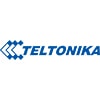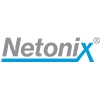TELTONIKA Industrial RS232 Wi-Fi 4 Wireless Access Point (DAP142)
2x 10/100 Mbps RJ45 LAN ports (LAN 2 supports Passive PoE in (9-30 VDC) ) | 1x RS232 port | 1x 2.4 GHz 4.81 dBi external Wi-Fi antenna | Wi-Fi 4 (IEEE 802.11b/g/n) | WPA3 | Up to 50 simultaneous connections | Fast Roaming | Power consumption: < 2 W
| Price: * | For orders (total sum): |
| 68.00$ | >0$ |
| Contact for better prices | >500$ |
| >1000$ | |
| >5000$ | |
| >10000$ | |
|
In stock <10 pcs
|
|
Features:
The DAP142 is a Teltonika industrial wireless access point with passive PoE, engineered for enhanced and reliable Wi-Fi coverage and performance in industrial environments. This access point is equipped with an RS232 port and two RJ45 ports, and is powered via a 3-pin power connector, making it ideal for specialised industrial applications. In addition to Wi-Fi 4 capabilities, the DAP142 supports Wi-Fi mesh, Fast Roaming, and up to 50 simultaneous connections. With an integrated DIN rail bracket, durable aluminium casing, and plug-and-play functionality, this wireless access point provides simple installation and configuration at minimum effort.
WIRELESS AP CAPABILITIES
Seamless Wi-Fi 4 with Wi-Fi mesh & Fast Roaming
MULTIPLE INTERFACES
Featuring two RJ45 ports & an RS232 port
POWER INPUT
1 x 3-pin power connector tailored for industrial use
INTEGRATED DIN RAIL BRACKET
Easy mounting for plug-and-play deployment
Specification:
Wireless
Wireless mode: IEEE 802.11b/g/n (Wi-Fi 4), Access Point (AP), Client (STA), Mesh (802.11s), Multi AP
WiFi security: WPA-PSK, WPA2-PSK, WPA3-SAE, WPA-EAP, OWE, WPA2-EAP, WPA3-EAP
SSID/ESSID: ESSID stealth mode
Wi-Fi users: Up to 50 simultaneous connections
Wireless Connectivity Features: Wireless mesh (802.11s), fast roaming (802.11r), Relayd, BSS transition management (802.11v), radio resource measurement (802.11k)
Wireless MAC filter: Allowlist, blocklist
Wireless QR code generator: Once scanned, a user will automatically enter your network without needing to input login information
TravelMate: Forward Wi-Fi hotspot landing page to a subsequent connected device
Ethernet
LAN: 2 x LAN ports, 10/100 Mbps, compliance with IEEE 802.3, IEEE 802.3u, 802.3az standards, supports auto MDI/MDIX crossover
Network
Routing: Static routing, Dynamic routing (BGP, OSPF v2, RIP v1/v2, EIGRP, NHRP), Policy based routing
Network protocols: TCP, UDP, IPv4, IPv6, NTP, DNS, HTTP, HTTPS, FTP, SMTP, SSL/TLS, ARP, VRRP, PPP, PPPoE, UPNP, SSH, DHCP, Telnet, SNMP, MQTT, Wake On Lan (WOL)
VoIP passthrough support: H.323 and SIP-alg protocol NAT helpers, allowing proper routing of VoIP packets
Connection monitoring: Ping Reboot, Wget Reboot, Periodic Reboot, LCP and ICMP for link inspection
Firewall: Port forward, traffic rules, custom rules
Firewall status page: View all your Firewall statistics, rules, and rule counters
Ports management: View device ports, enable and disable each of them, turn auto-configuration on or off, change their transmission speed, and so on
Network topology: Visual representation of your network, showing which devices are connected to which other devices
DHCP: Static and dynamic IP allocation, DHCP relay, DHCP server configuration, status, static leases: MAC with wildcards
QoS / Smart Queue Management (SQM): Traffic priority queuing by source/destination, service, protocol or port, WMM, 802.11e
DDNS: Supported >25 service providers, others can be configured manually
DNS over HTTPS: DNS over HTTPS proxy enables secure DNS resolution by routing DNS queries over HTTPS
Network backup: Wi-Fi WAN, VRRP, Wired options, each of which can be used as an automatic Failover
Load balancing: Balance Internet traffic over multiple WAN connections
Hotspot 2.0: Hotspot 2.0 is a Wi-Fi standard that enables seamless, secure, and automatic connection to trusted wireless networks
SSHFS: Possibility to mount remote file system via SSH protocol
VRF support: Initial virtual routing and forwarding (VRF) support
Traffic Management: Real-time monitoring, wireless signal charts, traffic usage history
Security
Authentication: Pre-shared key, digital certificates, X.509 certificates, TACACS+, Internal & External RADIUS users authentication, IP & login attempts block, time-based login blocking, built-in random password generator
Firewall: Preconfigured firewall rules can be enabled via WebUI, unlimited firewall configuration via CLI, DMZ, NAT, NAT-T, NAT64
Attack prevention: DDOS prevention (SYN flood protection, SSH attack prevention, HTTP/HTTPS attack prevention), port scan prevention (SYN-FIN, SYN-RST, X-mas, NULL flags, FIN scan attacks)
VLAN: Port and tag-based VLAN separation
WEB filter: Blacklist for blocking out unwanted websites, Whitelist for specifying allowed sites only
Access control: Flexible access control of SSH, Web interface, CLI and Telnet
SSL certificate generation: Let's Encrypt and SCEP certificate generation methods
VPN
OpenVPN: Multiple clients and a server can run simultaneously, 27 encryption methods
OpenVPN Encryption: DES-CBC 64, RC2-CBC 128, DES-EDE-CBC 128, DES-EDE3-CBC 192, DESX-CBC 192, BF-CBC 128, RC2-40-CBC 40, CAST5-CBC 128, RC2-64-CBC 64, AES-128-CBC 128, AES-128-CFB 128, AES-128-CFB1 128, AES-128-CFB8 128, AES-128-OFB 128, AES-128-GCM 128, AES-192-CFB 192, AES-192-CFB1 192, AES-192-CFB8 192, AES-192-OFB 192, AES-192-CBC 192, AES-192-GCM 192, AES-256-GCM 256, AES-256-CFB 256, AES-256-CFB1 256, AES-256-CFB8 256, AES-256-OFB 256, AES-256-CBC 256
IPsec: XFRM, IKEv1, IKEv2, with 14 encryption methods for IPsec (3DES, DES, AES128, AES192, AES256, AES128GCM8, AES192GCM8, AES256GCM8, AES128GCM12, AES192GCM12, AES256GCM12, AES128GCM16, AES192GCM16, AES256GCM16)
GRE: GRE tunnel, GRE tunnel over IPsec support
PPTP, L2TP: Client/Server instances can run simultaneously, L2TPv3, L2TP over IPsec support
Stunnel: Proxy designed to add TLS encryption functionality to existing clients and servers without any changes in the program’s code
DMVPN: Method of building scalable IPsec VPNs, Phase 2 and Phase 3 and Dual Hub support
SSTP: SSTP client instance support
ZeroTier: ZeroTier VPN client support
WireGuard: WireGuard VPN client and server support
Tinc: Tinc offers encryption, authentication and compression in it's tunnels. Client and server support.
Tailscale: Tailscale offers speed, stability, and simplicity over traditional VPNs. Encrypted point-to-point connections using the open source WireGuard protocol
OPC UA
Supported modes: Client, Server
Supported connection types: TCP
MODBUS
Supported modes: Server, Client
Supported connection types: TCP, RTU(RS232)
Custom registers: MODBUS TCP custom register block requests, which read/write to a file inside the router, and can be used to extend MODBUS TCP Client functionality
Supported data formats: 8-bit: INT, UINT; 16-bit: INT, UINT (MSB or LSB first); 32-bit: float, INT, UINT (ABCD (big-endian), DCBA (little-endian), CDAB, BADC), HEX, ASCII
Data to Server
Protocol: HTTP(S), MQTT, Azure MQTT
Data to server: Extract parameters from multiple sources and different protocols, and send them all to a single server; Custom LUA scripting, allowing scripts to utilize the router's Data to server feature
MQTT Gateway
Modbus MQTT Gateway: Allows sending commands and receiving data from MODBUS Server through MQTT broker
DNP3
Supported modes: Station, Outstation
Supported connection: TCP, RTU(RS232)
DLMS
DLMS Support: DLMS - standard protocol for utility meter data exchange
Supported modes: Client
Supported connection types: TCP, RTU(RS232)
COSEM: Allows to scan meter COSEM objects for automatic detection and configuration
API
Teltonika Networks Web API (beta) support: Expand your device's possibilities by using a set of configurable API endpoints to retrieve or change data. For more information, please refer to this documentation: https://developers.teltonika-networks.com
Monitoring & Management
WEB UI: HTTP/HTTPS, status, configuration, FW update, CLI, troubleshoot, multiple event log servers, firmware update availability notifications, event log, system log, kernel log, Internet status
FOTA: Firmware update from server, automatic notification
SSH: SSH (v1, v2)
Email: Receive email message status alerts of various services
TR-069: OpenACS, EasyCwmp, ACSLite, tGem, LibreACS, GenieACS, FreeACS, LibCWMP, Friendly tech, AVSystem
MQTT: MQTT Broker, MQTT publisher
SNMP: SNMP (v1, v2, v3), SNMP Trap, Brute force protection
JSON-RPC: Management API over HTTP/HTTPS
MODBUS: MODBUS TCP status/control
RMS: Teltonika Remote Management System (RMS)
IoT Platforms
ThingWorx: Utility to interact with Thingworx cloud platform
Cumulocity - Cloud of Things: Allows monitoring of: Device Model, Revision and Serial Number, WAN Type and IP. Has reboot and firmware upgrade actions
Azure IoT Hub: Can be configured with Data to Server to send all the available parameters to the cloud. Has Direct method support which allows to execute RutOS API calls on the IoT Hub. Also has Plug and Play integration with Device Provisioning Service that allows zero-touch device provisioning to IoT Hubs
AWS IoT Core: Utility to interact with the AWS cloud platform. Jobs Support: Call the device's API using AWS Jobs functionality
System Characteristics
CPU: Mediatek, 580 MHz, MIPS 24KEc
RAM: 128 MB, DDR2
FLASH storage: 16 MB serial NOR flash
Firmware / Configuration
WEB UI: Update FW from file, check FW on server, configuration profiles, configuration backup
FOTA: Update FW
RMS: Update FW/configuration for multiple devices at once
Keep settings: Update FW without losing current configuration
Factory settings reset: A full factory reset restores all system settings, including the IP address, PIN, and user data to the default manufacturer's configuration
Firmware Customisation
Operating system: RutOS (OpenWrt based Linux OS)
Supported languages: Busybox shell (ash), Lua 5.1, C, C++
Development tools: SDK package with build environment provided
GPL customization: You can create your own custom, branded firmware and web page application by changing colours, logos, and other elements in our firmware to fit your or your clients’ needs
Package Manager: The Package Manager is a service used to install additional software on the device
Serial
RS232: Terminal block connector: TX, RX, RTS, CTS
Serial functions: Console, Serial over IP, Modem, MODBUS gateway, NTRIP Client
Power
Connector: 3-pos plugable terminal block
Input voltage range: 9-30 VDC, reverse polarity protection, surge protection >31 VDC 10us max
PoE (passive): Passive PoE over spare pairs. Possibility to power up through LAN2 port, not compatible with IEEE802.3af, 802.3at and 802.3bt standards, Mode B, 9 - 30 VDC
Power consumption: Idle: < 1 W / Max: < 2 W
Physical Interfaces
Ethernet: 2 x RJ45 ports, 10/100 Mbps
Status LEDs: 2 x LAN type LED, 1 x Power LED
Power: 1 x 3-pin power connector
Antennas: 1 x RP-SMA for Wi-Fi
RS232: 1 x DB9 socket
Reset: Reboot/User default reset/Factory reset button
Other: 1 x Grounding screw
Physical Specification
Casing material: Aluminium housing
Dimensions (W x H x D): 113.10 x 25 x 68.6 mm
Weight: 149.2 g
Mounting options: Integrated DIN rail bracket; wall mount and flat surface (additional kit needed)
Operating Environment
Operating temperature: -40 °C to 75 °C
Operating humidity: 10% to 90% non-condensing
Ingress Protection Rating: IP30
Regulatory & Type Approvals
Regulatory: CE, UKCA, CB
Package contains:
- Industrial Access Point DAP142
- 3-pin power connector
- 1x Wi-Fi antenna (magnetic, RP-SMA male)
- QSG (Quick Start Guide)
- Packaging box

























